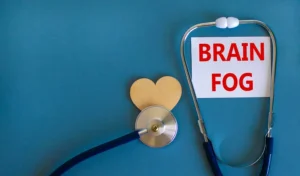
The spiritual principle involved is that of forgiveness, not only from others but forgiveness of self, which can bring healing to both parties. Generally speaking, people work through the Steps of Alcohol Anonymous with an addiction treatment counselor and/or sponsor. You can also turn to AA’s Big Book and Twelve Steps and Twelve Traditions (the 12 & 12) for guidance specific to Step 8. It’s important to note that making amends is for the person we hurt. Yes, we partake in the process to “clean up our side of the street,” but we do not make amends to clear our conscience or undo our feelings of guilt.
When Should You Approach a Person to Make Amends?
It’s about making positive changes within yourself so that you don’t repeat old patterns of behavior that led to your broken relationships in the first place. The changes that occur due to your efforts positively affect your commitment to becoming a better friend, child, parent, or person all around. The 12 steps are a set of guiding principles that were developed by Alcoholics Anonymous (AA) as a way to help individuals struggling with addiction achieve and maintain sobriety.
A Choice for Meaningful Treatment with Dignity

To fix broken relationships, you have to put a lot of effort into making things work. It’s not enough to say to someone that you apologize and feel badly for how you acted in the past. It takes a certain maturity and living amends level of respect for yourself and the person you’re hoping to reconnect with to get past any past issues. On the other hand, millions have acknowledged their belief that AA and its principles saved their life.
Careers – Join Our Team
- When making an AA amendment, it’s important to apologize sincerely, be humble, accept responsibility for your actions, admit fault, change your behavior, and make an effort to rebuild trust.
- We cannot give you customized advice on your situation or needs, which would require the service of an actual attorney.
- Each program is designed to exceed industry standards and provide the highest quality care.
- With their extensive knowledge and empathetic approach, clients receive the support and expertise needed to navigate the challenges of addiction.
You can’t blame your addiction-related behaviors on stress, a quick temper, or mere impulsiveness. You must acknowledge that you chose to act in a way that caused harm to others. But when I worked this step with my sponsor I realized that I had several issues that I didn’t even realize I needed to make amends about. The first being the alcoholics in my life, I had a part in their disease and didn’t know what I had done to them. I always thought that I had been making direct amends whenever I had injured others. I would apologize for my mistakes and pray about it to have the knowledge to not repeat my actions.
- Living amends can help you rid yourself of the pain of guilt and the need to constantly say “I’m sorry” to the people you’ve wronged in your life.
- Undertaking the process of making amends necessitates careful thought and consideration.
- It would be nice if the above outcomes were universal—but they aren’t (of course).
- The process of making amends can pose challenges and often trigger fears and anxieties.
- In such cases, living amends—ongoing changes in behavior and attitudes—are made to demonstrate a commitment to sobriety, personal growth, and making a positive difference.
To learn more about addiction recovery, including AA, reach out to Silver Mist Recovery. Accept that there is always a possibility you will be yelled at or otherwise rejected. Even with exemplary conduct on your part, everything can still go “wrong.” This is why wishing for a particular outcome is unhelpful.

Your Future Starts at Silvermist

Remembering how I stole from you makes me sad and fills me with shame. While I did these things in active addiction, that does not take away from how wrong they were, and the pain and sense of betrayal you must have felt as a result of my actions. For example, someone living with an addiction may make amends by apologizing for stealing property and then make it right by returning what they’d taken.
Waypoint Recovery Center Blog

This signifies the acceptance of one’s responsibility for harmful actions. It involves specifying the particular behaviors and actions that led to harm, ensuring the admission is not vague or wishy-washy. When you make a real effort to change your past behaviors, you need to make the initial move in repairing broken relationships. These steps mean taking ownership of the past, apologizing for wherever you made mistakes and moving forward from those missteps. Making living amends can take on many different forms depending on the relationship to those affected by the wrongdoing. In most cases, the offender owes apologies to the people closest to them, like their friends, parents, and children.
- It highlights the essential work of aligning one’s actions with values, moving away from past behaviors, and towards a meaningful and forthright way of living life sober.
- Step 9 is another one of the 12 steps, that initially appears most difficult, but the rewards of putting this principle into practice can be immense.
- Unfortunately, this scenario plays out much too often in the lives of people who didn’t get a chance to correct their mistakes and past behaviors in time.
Recovery Coaching
- Soon, you’ll run out of reasons to give your loved ones why you’ve failed them once again.
- You can gain clarity about what happened and what should have happened.
- It goes beyond simply apologizing to taking steps to right a wrong.
- Sometimes the injured party is not willing to forgive and forget.
